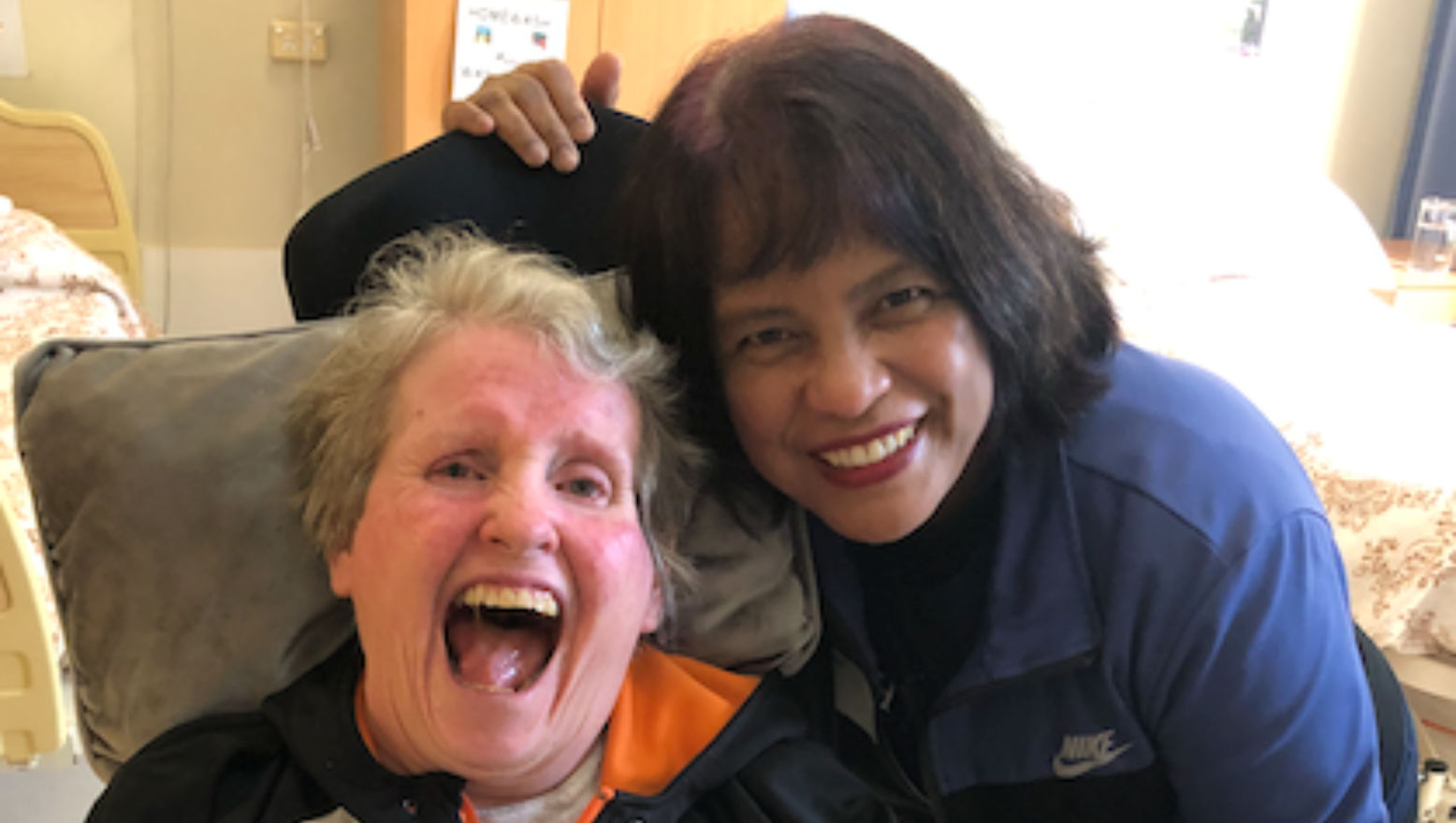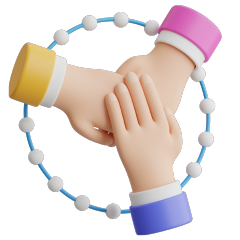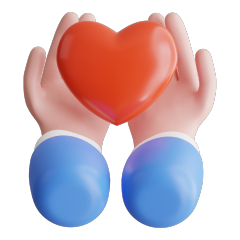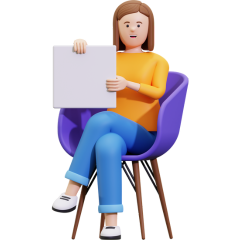Six years strong: Kathy receives support from a trusted support worker

Complications from a ruptured brain aneurysm left Kathy with significant health challenges, but she has now made significant improvements, with support from allied health and Leora.
Kathy suffered a ruptured brain aneurysm in 2013, at the age of 54. Complications left her paralysed from the neck down, with very minimal use of her right hand and arm. She was also unable to speak or receive food through the mouth.
Despite these significant health challenges, she maintains her sunny demeanour with the support of her loving family and her Afea carer, Girlie, who has been with her since 2018.
Thanks to years of allied health support and Girlie’s encouragement and care, Kathy can now swallow small amounts of food, lift her right arm with ease and communicate using a device.
“Kathy is a happy person, and I make sure that there are no dull moments with her when she’s with me,” Girlie shares. “I tell her stories to make her laugh. She lives in a nursing home where death and sadness can be a part of everyday living, so by constantly cheering her up and getting her out to get some fresh air and talk to people outside, I’d like to think that I am contributing to a better quality of life for Kathy.”
Keep reading to learn more about Kathy’s inspiring story.
Aneurysm and a stroke
A brain aneurysm is a bulge in a blood vessel in the brain. Most brain aneurysm don’t cause symptoms or health problems. If it ruptures or bursts, it causes bleeding in the brain and can quickly become life-threatening.
In Kathy’s case, the burst brain aneurysm subsequently caused strokes, which left her unable to move from the neck down, except for very minimal use of her right hand and arm.
“After three months in hospital intensive care, Kathy was moved into the aged care facility space, where she remains today,” says Greg, Kathy’s husband. “Kathy is non-verbal and receives all of her nourishment via PEG feeding.”
Their family successfully applied for NDIS access in June 2017.
(Younger people in residential aged care or YPIRAC are people younger than 65 who live permanently in an aged care facility. If you’re YPIRAC and live with a permanent disability, you might be eligible to access the NDIS. Related: YPIRAC and the NDIS)
Finding a carer
Kathy’s NDIS plan covers the cost of a carer for six hours every week. Greg’s next mission: finding the right carer.
“I had a friend, Deb, who was in a similar situation as me. Her husband, Dave, was in care with early onset dementia. She had enlisted the help of Afea to assist in her husband’s care within his facility. Deb spoke highly of the support her husband received.”
Greg reached out to Afea and was delighted when Kathy was allocated the same carer who looked after Dave. “Deb was so happy for Kathy and I – she could not speak more highly of your employee who, of course, is Girlie.”
Companionship and care
Girlie supports Kathy in improving her communication skills, mobility and social interactions.
“All I know is that I have given Kathy lots of encouragement and companionship throughout the years,” Girlie tells us.
“When I met her, she wasn’t using her right arm much, but with regular physio exercises and encouraging her to lift her arm, Kathy could now wipe or scratch her face with ease. She loves singing, so I made sure she had the opportunity to sing each time she’s with me. Although she speaks with no sound, Kathy mimes really well.”
‘Queen of trivia’
Kathy first spent nine years in a North Ryde facility before transferring to another suburb.
Her nursing home has diversional staff who run leisure programs, including trivia competitions and movie afternoons.
Greg describes Kathy as the “queen of trivia”.
“Although she cannot speak, the staff always check with Kathy as she will mouth the answers.”
Greg works full time but he makes sure to visit Kathy in the morning every weekday. He spends time with her on Friday afternoons and the weekends.
“We have fun interacting with the diversional staff as well as other staff – it becomes a bit of a concert, really, as I add commentary relayed to Kathy, as to the goings on with the others. Sometimes it’s a bit naughty, but always brings laughter – something that IS audible with Kathy!”
Fun with the family
While Kathy receives nourishment via PEG feeding, over the years Greg has been able to administer thickened veggies and smoothies.
“She loves the introduction of flavours and Kathy can manage to swallow small amounts, which she is very proud off.”
For over 10 years, Kathy and Greg has maintained weekly meetups with family and friends every Saturday morning. “This has been even more fun of recent, as our eldest son and his wife presented us with a grandson!”
Future goals
Greg’s goal is to make sure Kathy’s health and comfort are maintained to the highest level – and Afea is helping him achieve this. “Girlie’s visits are a highlight in this area,” Greg says.
Through the NDIS, they were able to purchase a motorised wheelchair for Kathy, which assists Girlie as she accompanies Kathy on their daily adventures outside the nursing home
“We also have an interactive eye-gaze device, which Girlie employs with Kathy. This has further added to Kathy’s ability to communicate – so important.
“As we continue down this path, I am encouraged to think we can maintain Afea’s excellent service through dedicated staff,” Greg says. “It certainly makes such a difference for the client and their families, when we can form these relationships.”
Need NDIS support?
We have experience providing compassionate care services in different settings, whether it’s a nursing home, a shared group home, a Specialist Disability Accommodation or your own living space. Reach out to us now via hello@leorahealth.com.au or 1300 65 11 33.





